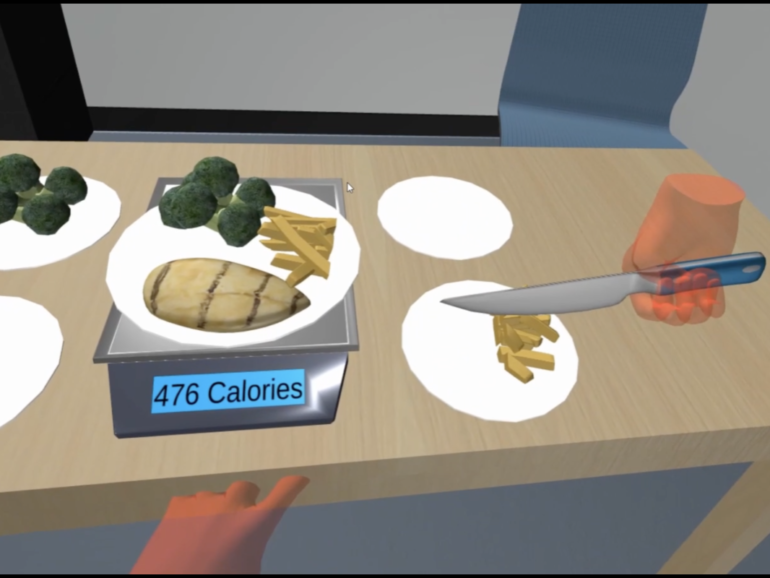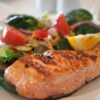A new program that uses immersive virtual reality to fill the role of a digital dietitian may eventually be able to improve the nutrition care process, according to a new analysis.
The program—the Immersive Virtual Alimentation and Nutrition Application (IVAN) application—was developed at Penn State and uses virtual reality headsets to help make the user feel like they are speaking to a real nutritionist in an office setting. The program walks the user through interactive activities designed to teach them about nutrition concepts like portion size and calorie density.
A team of seven experts, including registered dietitians and education specialists, evaluated the IVAN program across 14 different domains, including navigation, nutrition education content, and relevance of the educational content.
“The program scored highly across all 14 domains,” said Travis Masterson, assistant professor of nutritional sciences and director of the Health, Ingestive Behavior, and Technology lab at Penn State, “which suggests it was received positively overall and the experts felt it would be useful to users.”
The domains in which the program scored best were 1) faithful viewpoints, meaning it seemed to reflect a real environment; 2) the relevance of educational content, meaning that the educational material was useful; and 3) close coordination of action and representation, meaning that the interactions with the food felt realistic.
The analysis was recently published in the Journal of Nutrition Education and Behavior.
According to the researchers, the ability to make good choices about nutrition is an important skill to have, but high-quality science-backed information is hard to come by in the popular media.
“Registered dietitians are trained to help individuals improve their diets and are able to meet and work with people to improve their daily habits in a very individualized and personal way,” Masterson said. “But they often end up spending a large portion of their visits teaching basic nutrition concepts, which is not always an effective use of their time or skills.”
Masterson said that in the future, the program may be able to save clinics both time and money while freeing up the time of their registered dieticians to spend more time providing individualized feedback and targeted goal setting. Additionally, it gives users a fun and engaging experience that can improve their knowledge.
“The program gives users a realistic experience that is likely to improve their skills more than just watching a slideshow presentation or reading a pamphlet,” Masterson said. “In addition to clinical settings, we also hope to be able to distribute the IVAN program widely in the future for use in schools or even at home.”
More information:
Caitlyn G. Edwards et al, The Immersive Virtual Alimentation and Nutrition Application: An Interactive Digital Dietitian, Journal of Nutrition Education and Behavior (2022). DOI: 10.1016/j.jneb.2022.02.014
Provided by
Pennsylvania State University
Citation:
Digital dietician may help people make better choices (2022, May 25)



